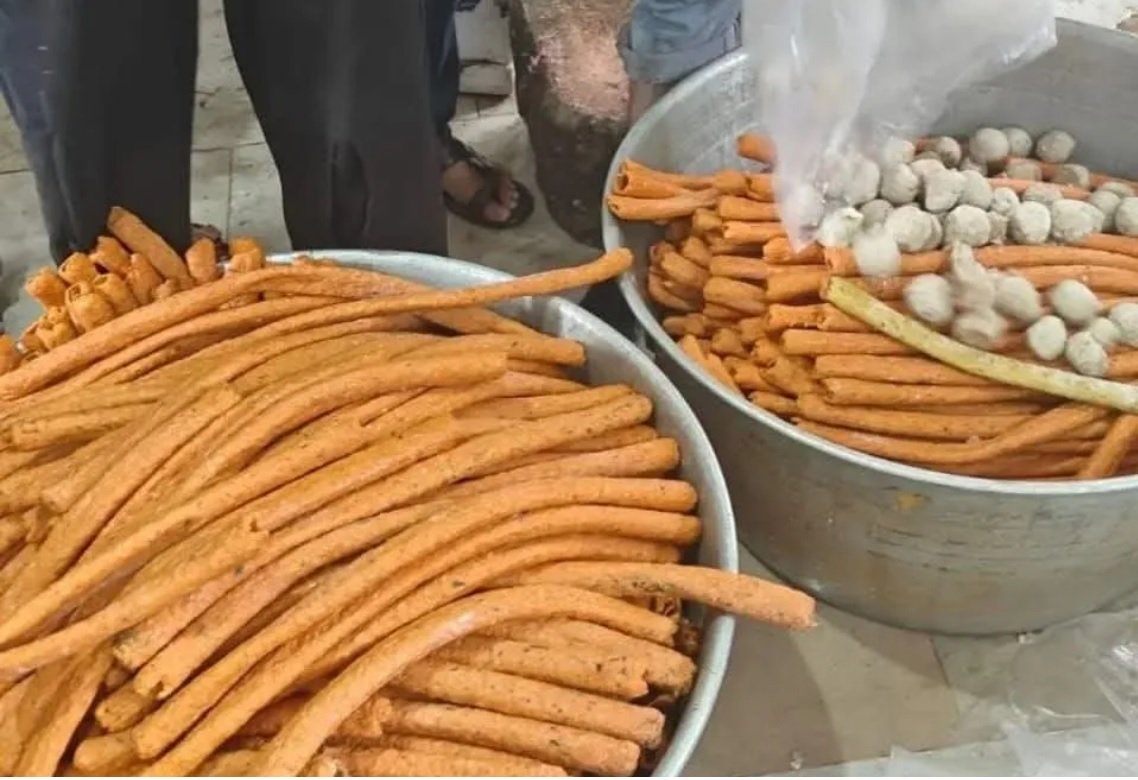Rotten Meat Crisis in Kashmir: A Public Health Emergency Threatening Trust and Tradition
By: Javid Amin | Srinagar | 07 Aug 2025
A Crisis of Trust and Taste
In August 2025, the “Rotten meat crisis in Kashmir” came to light, sparking widespread outrage, fear, and introspection. What was once whispered in kitchens and markets became a public health emergency as authorities uncovered over 3.5 tonnes of spoiled, unlabelled, and potentially haram meat intended for mass consumption across restaurants, street stalls, and hotel kitchens in the Valley.
This isn’t just about bad meat—it’s about a broken system. It’s about food vendors bypassing safety standards. It’s about an administration that responds to disaster but fails to prevent it. And most importantly, it’s about a society losing faith in the food it shares, celebrates, and sanctifies.
The Shocking Discovery
The crisis unfolded with a sweeping crackdown by the Food Safety Department, which confiscated:
- 2,500 kebabs from Srinagar’s Safakadal and Parimpora, made with frozen meat laced with illegal coloring agents.
- 150 kg of Goshtaba, Kashmir’s cherished delicacy, sent for lab testing after suspicions of spoilage.
- 250 kg of decomposing meat discovered in Nagbal, Ganderbal, deteriorated due to lack of cold-chain logistics.
Videos circulated on social media showed the meat being destroyed on-site, with officials calling it not a routine inspection but a “public health emergency.”
What they found was alarming:
- Foul smell and discoloration
- Absence of halal certification
- No refrigeration or proper packaging
- Untraceable origins
Religious Alarm – The Grand Mufti’s Fatwa
As panic surged, Mufti Nasir-ul-Islam, the Grand Mufti of Jammu and Kashmir, intervened. In a powerful fatwa, he declared:
“Earning or eating haram is not permissible under any circumstance.”
Highlights of the Fatwa:
- Prohibition of consumption and sale of meat without halal verification.
- Call to avoid momos, kebabs, and frozen meat from unverifiable sources.
- Demand for legal action: The Mufti urged authorities to book violators under the Public Safety Act (PSA).
- Appeal to Imams and khateebs to raise the issue during Friday sermons.
This turned a regulatory lapse into a moral and cultural crisis, tying food safety to faith and community wellbeing.
How the System Failed
The rotten meat crisis in Kashmir has exposed deep-rooted institutional failures:
1. No Routine Checks
Inspections are sporadic and largely reactive. There is no transparent mechanism for routine food safety monitoring across the supply chain.
2. Lack of Licensing
Many food vendors operate without any formal registration or training in hygiene, meat handling, or halal protocols.
3. Absence of Cold Chain Infrastructure
Spoiled meat was often found to be stored without refrigeration. Transport and storage protocols are nonexistent.
4. Failure at Entry Points
Places like Lakhanpur, which regulate goods entering Kashmir, are under-equipped and poorly monitored.
The Cultural and Economic Fallout
The crisis has triggered a collapse in consumer confidence:
- Families have stopped eating from restaurants and takeout vendors.
- Businesses, especially kebab sellers, momo stalls, and meat-based caterers, report massive declines in sales.
- Butchers and suppliers face a trust deficit, with even licensed traders under suspicion.
- Halal-certifying bodies are under pressure to ramp up oversight and public engagement.
The economic impact is devastating. Kashmir’s vibrant halal food economy, including wedding caterers and street food vendors, is in turmoil.
Public Reaction – From Fear to Fury
Social media in Kashmir exploded with videos of meat seizures and furious reactions. Key concerns voiced by residents include:
- “Why don’t we have food inspectors doing regular checks?”
- “Who let this meat into the Valley?”
- “How do I know the kebabs I had yesterday weren’t from the same batch?”
Some took it further, organizing awareness campaigns, urging others to boycott restaurants without verified meat sources.
Mothers are reportedly returning home-cooked food to schools and workplaces, citing safety concerns.
What Must Change – A Roadmap to Recovery
The rotten meat crisis in Kashmir must be a turning point. Experts suggest a multi-pronged approach:
01. Mandatory Licensing and Training
- Every meat vendor, street stall, and restaurant must register.
- Training in hygiene, cold-chain logistics, and halal handling is essential.
02. Public Reporting Mechanisms
- Create WhatsApp-based hotlines or citizen apps to report unhygienic practices.
- Encourage community vigilance with rewards for whistleblowers.
03. Weekly Random Testing
- Labs must test meat samples weekly, across urban and rural markets.
- Publish results online for public access.
04. Faith-Based Engagement
- Halal boards and clerics must collaborate with the government to ensure compliance.
- Mosques can play a key role in food safety education.
05. Public Health Education
- Launch campaigns in schools, media, and marketplaces on food safety basics.
- Promote “Know Your Meat” workshops.
Bottom-Line: Healing After Harm
The rotten meat crisis in Kashmir has left behind more than just foul smells—it’s left a scar on public trust, religious assurance, and the sanctity of Kashmiri cuisine. This moment demands more than raids and press conferences. It calls for systemic reform, community action, and above all, a recommitment to the values of hygiene, honesty, and halal integrity.
Let the Valley never again doubt what’s on its plate.




